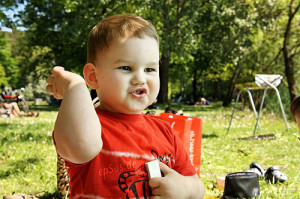
Dealing with Restlessness in Children through Walking Meditation
Wouldn’t it be wonderful if our children could experience full joy while eating an ice-cream or while doing an activity they love, instead of burning

Wouldn’t it be wonderful if our children could experience full joy while eating an ice-cream or while doing an activity they love, instead of burning

What to Do If Your Child is Afraid of Monsters? “What if My 3 year old tells me he saw a ghost or monster? How

Why not just visit a psychotherapist when you have no problems? When you go to a psychotherapist when there is no problem, you have the space to explore and reflect on your life. The intention would be solely for optimizing your life. It’s like talking to a dietician about how to modify your diet when you don’t have cholesterol or diabetes.

Do you see that your child is impatient, impulsive and is easily distracted? Or, that he is unable to continue one task until it is completed?
If you have noticed these tendencies in your child, perhaps they are due to his nature or personality. Or then, perhaps they are not. Maybe he simply can’t help being impatient. Maybe he can’t control his mind when it drifts off his books; and by the time he realizes, 10 minutes have passed.

Yesterday, we spoke about how consciously taking care of your emotional health goes a long way in nurturing and strengthening yourself.
Today, we address a slightly deeper issue.
What happens when sometimes, you feel stuck at an impasse? When you know internally that something is not quite okay… that you’re feeling a certain way and you don’t want to continue feeling like that?
You try to resolve it. Yes, it’s good to do that. You’d try and check what’s going wrong; you’d try to correct it.
What happens if still, those stresses or feelings don’t get better? Then what do you do? Turn to friends, family and other people you can trust. This is also good. People who know us act as sounding boards and support us.
But sometimes, even after talking to them, you feel that things are still not okay; like there are some knots that are entangled, and just won’t loosen up.
What then would you do?

Most of you may have come across a child who is naughty and stubborn, who tends to be insistent on getting his way, so much that people have to give in to what he wants much of the time. Some of you may even live with one such child in your family. This article is an attempt to unravel what such a child thinks, feels and needs. There is a further article here that elaborates on how parents and caregivers can better understand and deal with these children.
Stubborn children get noticed in most places – at home for sure, also at school, at play, even in public places and restaurants at times, much to their parents’ despair. It is easy to notice them; however, is it as easy to understand them?
Stubbornness and difficult behavior have their own way of functioning. They exist in the child for a reason. Until this reason is understood, children cannot be helped completely to change these behaviors. What’s more, if these reasons are not understood and appreciated, well meaning parents and teachers can do more harm than good to the child.
I invite you here to-
Take a Peek into the Stubborn Child

This is a question I am often asked by parents in therapy.
‘How to react if the child throws a temper tantrum?’
If you are a parent, you probably have been through this dilemma and resolved it. Or maybe you are going through it at present.
Some children find it easier to adjust when things don’t go their way. They may occasionally cry or fuss a little, but they’re largely open to adjusting.
Some children find it extremely difficult to make such an adjustment. They tend to get very upset when things don’t go their way. They may cry loudly, shout and insist that their demand be met with. The more you deny them what they want, the more they cry and the temper tantrum aggravates. Ultimately, you reach a place where you don’t know how to react.
In such a scenario, what is better? To fulfill the child’s demand or say no?

Those of us who have children who are irritable and easily angered probably wonder why they are so short-tempered, why they snap back for everything we say and just WHY they are so aggressive. Most of the reasons we manage to think about center around stubbornness, immaturity, peer pressure, deriving pleasure out of rebellion and an irresponsible approach to life. Naturally, our approach towards correcting such behaviors stem from these reasons. We chide our children, give them repeated instructions and make repeated attempts to get them to obey and conform. However, if you have noticed, these may not have worked. You may see that your child still continues to defy and disobey. In fact, most of you may notice that the more you try to correct your child, the more defiant and oppositional your child becomes.

Depression can affect children as well.
Many of us would feel that this is just a child, how can he/she be depressed? Perhaps it’s just a mood swing or a phase. Yes, that happens too. Not every child who seems sad or introverted is depressed. But if you notice a significant change in your child’s behavior, which he just doesn’t seem to be ‘getting over’ and is adversely impacting his school work and/or relationships, perhaps it’s time to pay attention.

Coping and dealing with a child who has a developmental difficulty requires patience, understanding and firm inner resilience, which is why it is referred to as being relatively difficult. It takes us time to understand the nature of our child’s barriers to growth and then help them. But, what about a situation where we probably do not understand fully that our child is facing genuine barriers to growth?? What about when we attribute their problem behavior to their personalities and miss out on recognizing a mild form of a developmental disturbance?? This blog muses about these possibilities.

We specialize in combining psychotherapy with deep wellness practices like mindfulness and meditation and creating a customized mental health plan for individuals and organisations.
We specialize in combining psychotherapy with deep wellness practices like mindfulness and meditation and creating a customized mental health plan for individuals and organisations.

A young woman from another country moved with her family to live for one year in a town near the monastery. When, in the course of the year she discovered the monastery, she would periodically visit to have discussions with the Abbess. The Abbess introduced her to meditation, which became very meaningful for the young woman.
When the family’s year-long stay was drawing to an end, the young woman asked the Abbess, “In my country there is no Buddhism and no one has even heard about meditation. How can I continue to learn and deepen the practice you have started me on?”
The Abbess said, “When you return home ask far and wide for who, among the wise people, is recognized as having the greatest ability to listen. Ask that person to instruct you in the art of listening. What you learn about listening from such a person will teach you how to further your meditation practice.
― Gil Fronsdal, A Monastery Within: Tales from the Buddhist Path